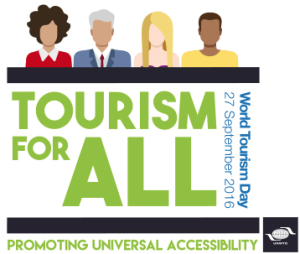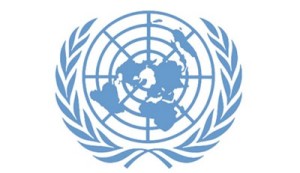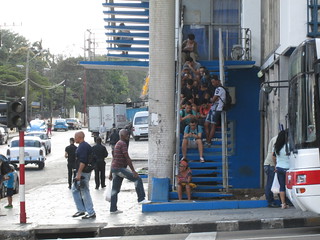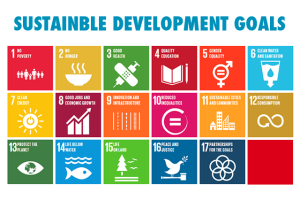 My Facebook newsfeed is filled with posts from my male Afghan colleagues, talking about their travels, their work, their children, sharing photos, etc. But rare is the post from Afghan women I’ve worked with. And recently, I was reminded yet again of why that is.
My Facebook newsfeed is filled with posts from my male Afghan colleagues, talking about their travels, their work, their children, sharing photos, etc. But rare is the post from Afghan women I’ve worked with. And recently, I was reminded yet again of why that is.
In some countries, a woman’s reputation regarding her virtue is every bit as important as food and health care, in terms of prosperity, let alone survival. When you are a girl or a woman in Afghanistan, or many other countries, you can’t just shrug at insults regarding your morals or honor. You do not have that privilege. You have to care deeply about what neighbors and co-workers and, really, what anyone might say about your virtue. Damage to your reputation regarding your virginity, your marriage, your care for your children, your sexuality, how you dress, how you behave in social settings, and everything else that makes up one’s moral character can cost a woman a job, her family, her marriage – even her life.
I was gobsmacked to find out just how true this was when I lived in Afghanistan for six months back in 2007 – my Afghan female co-workers were immobilized at times by fear of gossip about their honor. But it’s not just in that country: I heard a few comments when I lived in Ukraine that made me realize that, to a degree, it can be true there as well.
I was reminded of all this per an article in the Washington Post regarding women in Afghanistan who are being virtually assaulted, their Facebook profiles duped to create a second, fake profile, their friends invited to “friend” that profile, and then come the fake posts boasting of drug use and illicit behavior, attributed to the person being targeted. The identity thieves steal the women’s photos and steal and repost personal information publicly. Or, the woman’s actual account is hacked, the password changed so that she can no longer control the account – and the same tactic used: fake posts boasting of illicit behavior, altered photos of the woman drinking alcohol, etc. “Respectable reputations are demolished with a few keystrokes.” In addition, a woman on Facebook in Afghanistan may end up with an inbox deluged with pornography and violent threats from aggressive suitors and alleged militants. It leaves the women terrified of even their own family members, as the article details.
In the article, an Internet cafe owner talks about his attempts to help the many young women who are devastated to find out their profile has been duped or hacked with such reputation-destroying information and frantic to get the information removed. Sadly, his reports to Facebook aren’t taken seriously. The article says, “He suspects that the threats are so culturally specific — a profile photo showing a woman’s face or a beer Photoshopped into a photo of a female gathering, for example — that they often go unnoticed by Facebook administrators reviewing flagged accounts. What may look like an innocent account in the United States can be full of menacing innuendo to Afghan eyes.”
But there’s another reason that keeps so many women in Afghanistan and other countries off of social media as well: the Tall Poppy Syndrome. People talking about an accomplishment can be seen as bragging, and many feel that tall flower has to be cut down to the same size as all the others. The phrase is particularly popular in Australia, though some people say it isn’t success that offends Australians but, rather, someone that acts superior. But in many places, a woman saying anything on social media, except for praising the deity of her religion, is seen as bragging – and she becomes a target for her “tall” reputation being cut down. If you don’t believe that, search for malala yousafzai criticized on Google.
For all these reasons, many women in Afghanistan and other countries have given up on having a virtual identity at all – I personally know of two such women. This greatly hinders their ability to connect with potential colleagues abroad that could help them in their work, to build up a professional reputation beyond the walls of their office or beyond the staff of the organization, and build a career.
Of course, it hasn’t always been so easy in the Western world for a woman to shrug off gossip. In Pride and Prejudice, published in 1813, the heroine, Elizabeth Bennet, warns her father that the consequences of her sister Lydia’s reputation as a flirt affects “our importance, our respectability in the world”, noting that when a girl is perceived as being a flirt, it is the girl’s family members that pay the price: “Oh! my dear father, can you suppose it possible that they will not be censured and despised wherever they are known, and that their sisters will not be often involved in the disgrace?” 200 years later, no girl in the USA has to have that scene explained to her, even in our world of celebrity sex tapes and leaked nude photos and wardrobe malfunctions. Many women worldwide, even in “the West,” still fear loss of reputation through gossip, even if the consequences aren’t nearly as dire as in other countries.
By contrast, I now live in a privileged world where I can choose to shrug at personal insults thrown my way regarding my virtue, my moral behavior, etc. I know who I am, that I strive for integrity in my professional world and in personal matters, I know that the people I love and respect in my life know my true character and morals, and for me, that’s all that matters. If someone calls me a whore, I can simply roll my eyes and say, “Please call me Her Royal Highness and Whore, as it is my correct title,” and then I can go on about my day.
I’m from the Bible belt, and I’ve lived all over the USA, and I find that “but what will people think?!” is a mentality that still very much exists back home. I’m not sure when exactly I shed that mentality, but I do remember the first time I heard a story that says there was a man who constantly harassed and insulted the Buddha, but the Buddha never seemed fazed by it. When someone asked why he didn’t take offense to the insults, he replied, “If someone gives you a gift and you refuse to accept it, the gift stays with the giver.” I remember thinking: that’s what I want to strive for. Though, full disclosure: insults about my looks, my age, my weight, etc., still feel like punches in my gut, anc criticism of my work, and my approach to work, can sting. But insults about my virtue? Have at it – I don’t care.
So we, in the West, do understand, to a degree, the perils of gossip regarding moral behavior for our sisters in other countries. But what’s to be done? We certainly need to pressure social media companies like Facebook and Twitter to better respond to complaints of duping and hacking. But should we also encourage a new way of thinking: “Sticks and stones can break my bones but words can never hurt me”? I’m not sure it’s possible to become unoffendable – but could an entire culture be taught, deliberately, to become less so? Would that be a part of women’s empowerment, of the United Nations Sustainable Development Goals (SDGs), particularly #5 Achieve gender equality and empower all women and girls?
Regardless, it should serve as a caution to humanitarian and development workers wanting NGOs and government agencies to engage more on social media; you need to provide guidance for the women who would be expected to manage online activities on how to stay safe and protect their personal reputations.
January 4, 2016 update: See this post on TechSoup that summarizes an article about the risks taken by women in Pakistan, particularly female students, who use social media, and highlights the work of Nighat Dad, a lawyer in Pakistan who works to help women stay safe online.
Also consider this real-world example: The book Kabul Beauty School by Deborah Rodriguez chronicled her time running a beauty school in Kabul, where she trained and managed Afghan beauticians. The book ended up on The New York Times bestseller list, made an overnight sensation of Rodriguez, and was slated to become a movie, with Sandra Bullock playing the lead. But then her Afghan husband turned on her, demanding proceeds from the book. Other people showed up at the beauty school, demanding money from the women that worked there and threatening to bring dishonor to their families by showing photos Rodriguez had taken with her cell phone inside the shop of women behaving in an “un-Islamic” manner – photoss that, at the time of this blog, can still be found online. The book and those photos exposed the women to risks. Several of the Afghan women who worked at the beauty school and whose private lives she documents in her book went into hiding and applied for political asylum within the United States. They feel abandoned by Rodriguez. In an article a year after fleeing Afghanistan, she said “If I could give them what they want, I would. I don’t know how to help anymore.” The fate of the women remains unknown. Photos and stories shared in moments of joy, fun and sisterhood have ended up the very people she was trying to help.
Update April 16, 2019: The Kandahar field office of UN Assistance Mission in Afghanistan (UNAMA) hosted a discussion with 20 women representatives of civil society, local media, provincial council members, teachers and university students active on social media. The participants agreed that social media campaigns and platforms are important means of advocacy for women to play their role in peace process. Balancing the pros with the cons -such as risks of harassment from trolls and others- they created a closed social media group dedicated to empowering women. In southern Afghanistan, as in other parts of the country, women are largely left out of decision-making and peace processes. Gender-based violence is prevalent and women are not visible in many public domains because of family and other cultural restrictions. The limitations apply to social media as well with indicators showing that, despite the potential, very few women in the southern region are active in this sphere. See more via this UNAMA Facebook update.
Updated April 15, 2021: A comic strip demonstrates the challenges women face online. It’s developed by Kenya ICT Action Network (KICTANet). In a story of three differently aged, differently shaped and differently employed women, we see what violence can look like online, how the seemingly harmless can actually contribute to it, and what we can all do to prevent it and to create a safer space for women online.
Also see:
 World Tourism Organization
World Tourism Organization




